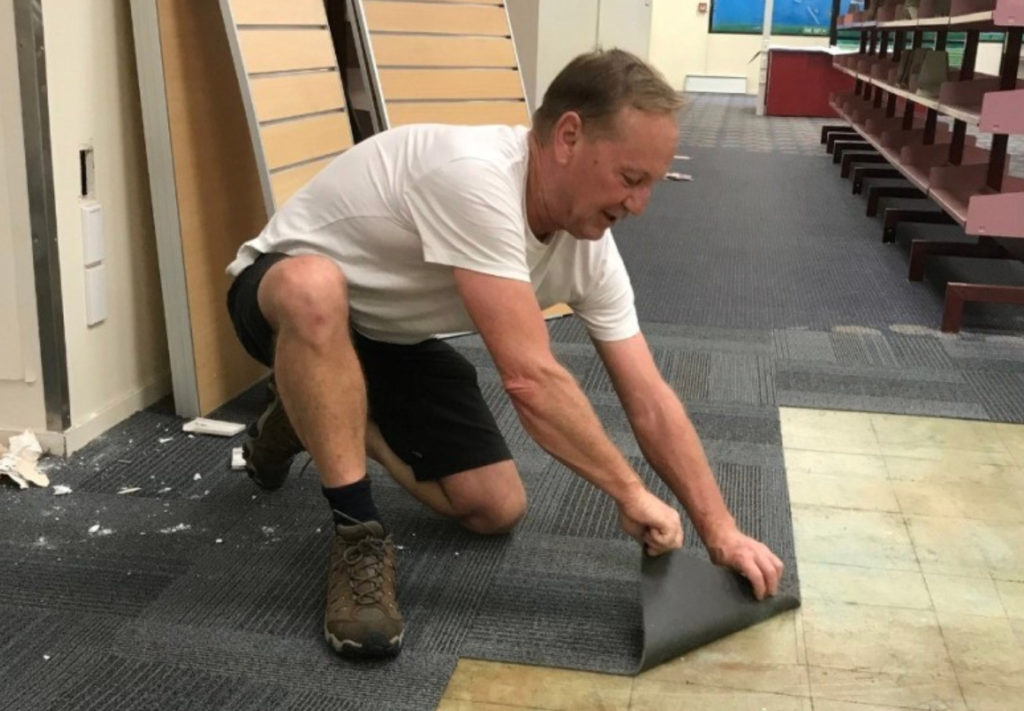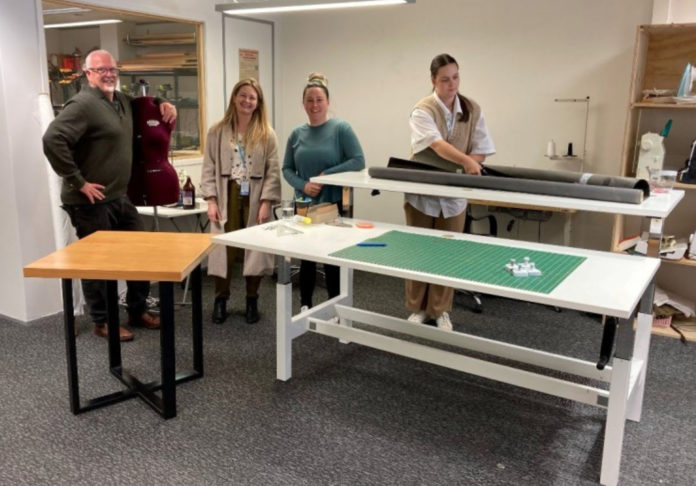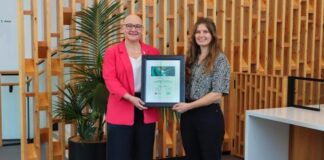Charities across Tauranga are putting unwanted office furniture to good use as part of an innovative waste minimisation project by Tauranga City Council.
The project has seen thousands of items of furniture from Council’s old building at 95 Willow Street rehomed in a bid to minimise waste to landfill while paying it forward to charities.
Council says the demolition is a timely reminder of the importance of reducing, reusing, and recycling as it seeks public feedback on the proposed Waste Management and Minimisation Plan and Bylaw.
The plan identifies the volume of construction and demolition waste going to landfill as one of the nine key waste issues facing Tauranga and provides actionable steps for how Council intends to work with the community to achieve their vision, goals, and objectives.
The demolition of the old civic building at Willow Street has been a long time coming, with mould first discovered in it in 2014 and further investigations revealing significant weather-tightness problems and moderate earthquake risks.
Once completed, a new civic precinct called Te Manawataki O Te Papa – ‘the heartbeat of Te Papa’ – will be developed at the site.
In preparation for the demolition, community groups were contacted by Tauranga City Council’s Sustainability and Waste team in April and invited to take their pick from hundreds of items available.
Groups and organisations that now benefit from the reused carpet tiles, desks, tables, lockers, and other furniture include Sustainability Options, Remaker, The Incubator Creative Hub, Awhina House and Te Puna Hall.
Tauranga City Council Waste Minimisation Officer, Liesel Carnie says the furniture rehoming project was incredibly rewarding.
“Tauranga City Council’s goal in its demolition of the Willow Street building is to divert as much waste from landfill as possible – not just in the demolition, but by giving unwanted furniture items a second life as work-from-home equipment for staff and through donation to charities,” she said.
“This furniture provides real benefit to these charities, giving them a leg up in the work they are doing and enabling them to direct their funds to their cause.”
Council’s Sustainability and Waste Manager, Sam Fellows says the project is an example of Council practising what it preaches.
“We are really pleased with the results and have exceeded the diversion rates we initially expected. It’s a fantastic outcome for our environment and our community.”
“Our proposed Waste Management and Minimisation Plan prioritises reducing and reusing over recycling, and the Wharf Street demolition is a great practical example of this in action. Public feedback on the plan and bylaw is closing soon so we encourage everyone to check them out online and let us know what they think,” he said.

How did organisations benefit?
- Local social enterprise Sustainability Options collected 370 squares of carpet tiles to be used through its 20 Degrees programme. The programme supports those living below the poverty line in inadequate, unhealthy housing. With the help of the carpet, Sustainability Options will transform many homes and lives.
- Remaker, a social enterprise dedicated to promoting sustainable life choices, took a double sit-to-stand desk to use as a pattern and sewing table. The desk will be used by the community to learn skills to upcycle, mend and make their own clothing and items from waste to avoid fast fashion.
- The Incubator Creative Hub took many of the meeting room tables to use in its new spaces, including a pottery space at The Historic Village, for artists and children to get creative.
- Transitional housing provider Awhina House took locker units to provide a secure space for the homeless women it supports to keep their belongings.
- Te Puna Hall has received many historical records from its community over the years and has not had anywhere to store them safely or appropriately for the community to view. With Council’s old map cabinets and holders, it can now preserve these documents and show them safely to the community.



